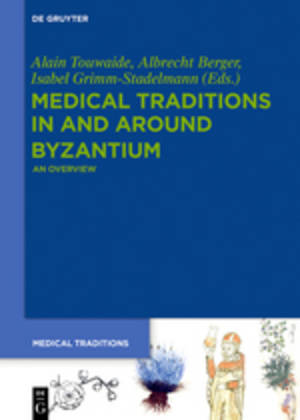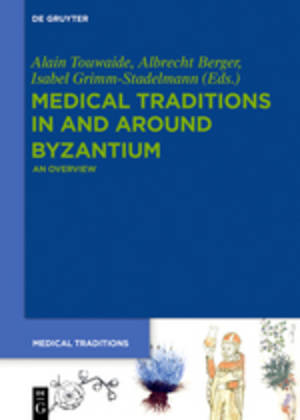
- Afhalen na 1 uur in een winkel met voorraad
- Gratis thuislevering in België vanaf € 30
- Ruim aanbod met 7 miljoen producten
- Afhalen na 1 uur in een winkel met voorraad
- Gratis thuislevering in België vanaf € 30
- Ruim aanbod met 7 miljoen producten
Zoeken
Medical Traditions in and around Byzantium
An Overview
€ 121,45
+ 242 punten
Omschrijving
Scholarly research has often reduced the history of medicine in Byzantium and the subsequent period to the transmission of the ancient legacy be it through the reproduction of classical texts in the Empire and later or their transmission to neighbouring cultures and their translation. Historiography increasingly brings to light both the originality and creativity of Byzantium, and its interaction with surrounding populations, making it necessary to revise the traditional narrative of the history of medicine in the Eastern Mediterranean World. The essays in the present volume pose the foundations for such a new approach. Case studies illustrate how Byzantium interacted with neighbouring cultures, sometimes in bi-directionnal exchanges resulting in the assimilation of contributions from these cultures. Going beyond, the essays presented here explore the medical traditions in presence, offering a survey of sources, methods of research, and problems. Through its cross-cultural, comprehensive treatment, the volume will be a reference for years to come for historians of medicine and medical texts, and the starting point of a new approach to the history of medicine in the Eastern Mediterranean World.
Specificaties
Betrokkenen
- Uitgeverij:
Inhoud
- Aantal bladzijden:
- 400
- Taal:
- Engels
- Reeks:
- Reeksnummer:
- nr. 3
Eigenschappen
- Productcode (EAN):
- 9783110600704
- Uitvoering:
- Hardcover
- Afmetingen:
- 170 mm x 240 mm

Alleen bij Standaard Boekhandel
+ 242 punten op je klantenkaart van Standaard Boekhandel
Beoordelingen
We publiceren alleen reviews die voldoen aan de voorwaarden voor reviews. Bekijk onze voorwaarden voor reviews.










